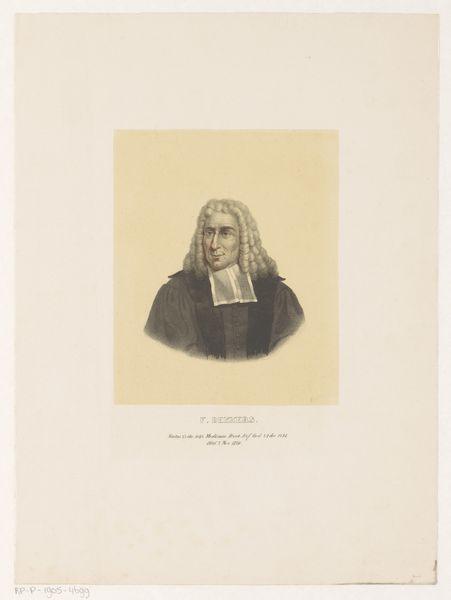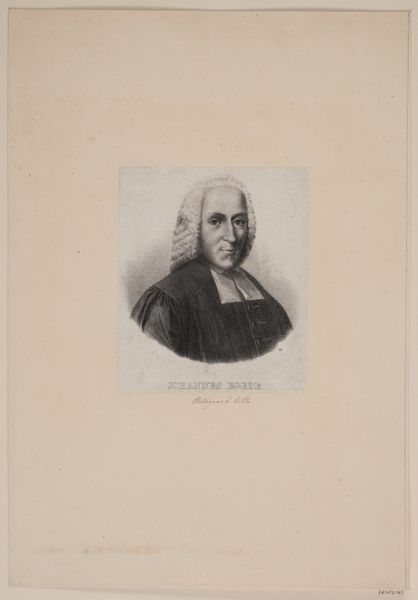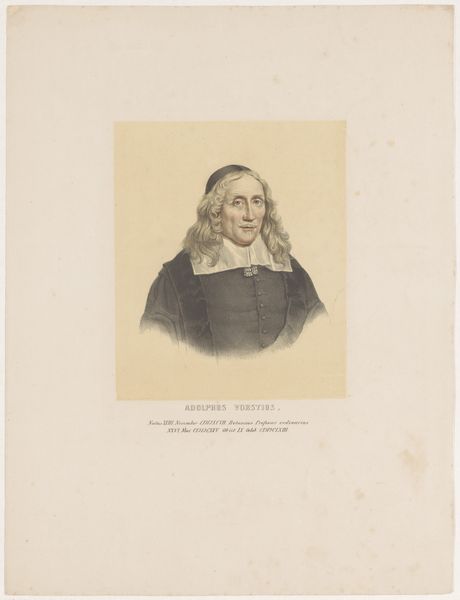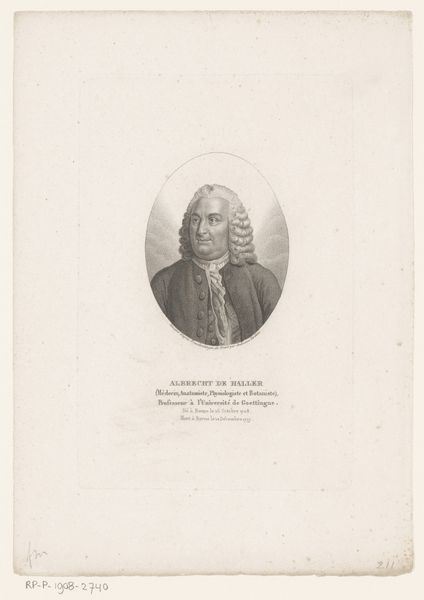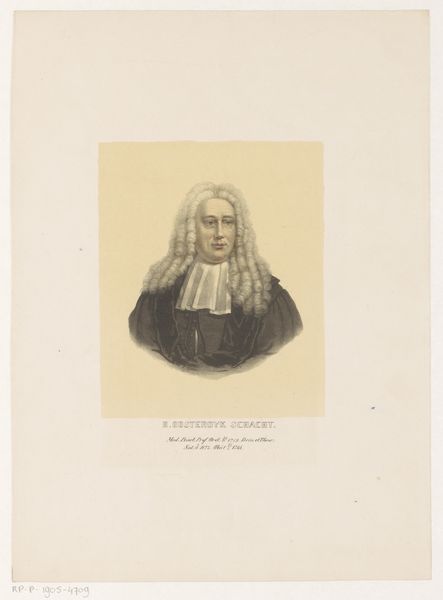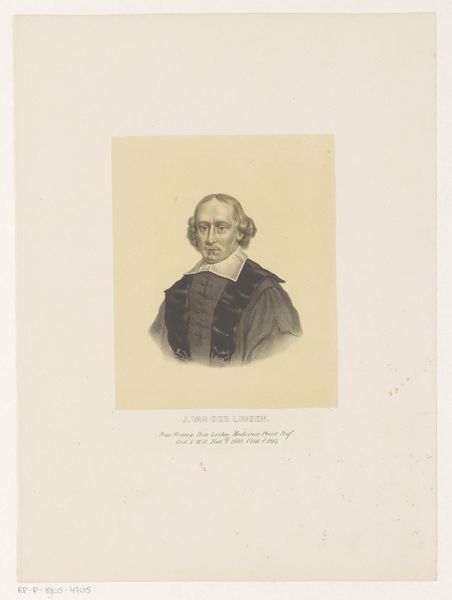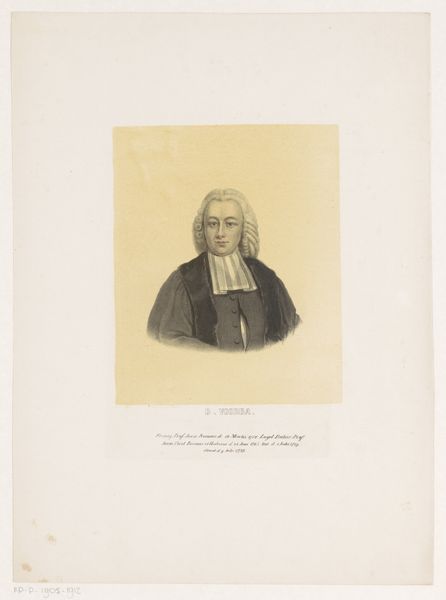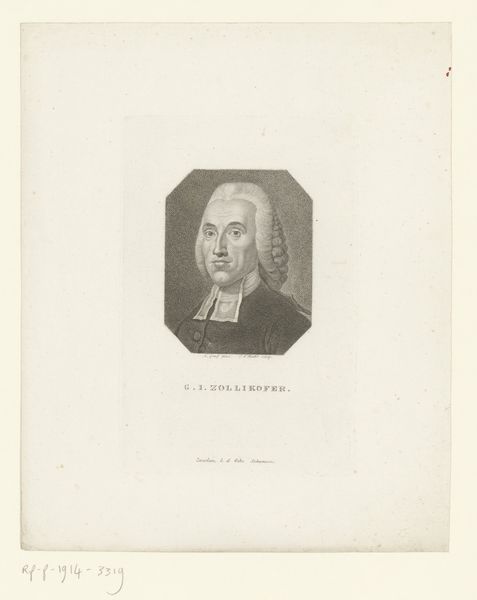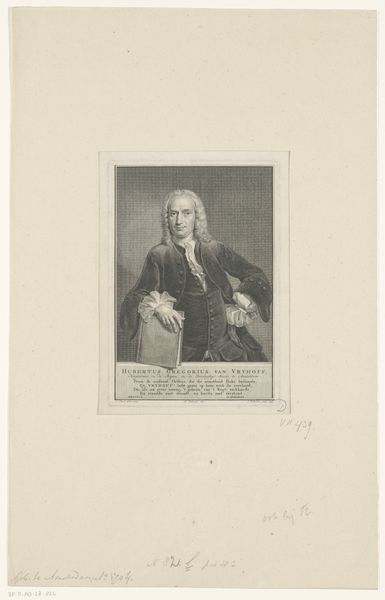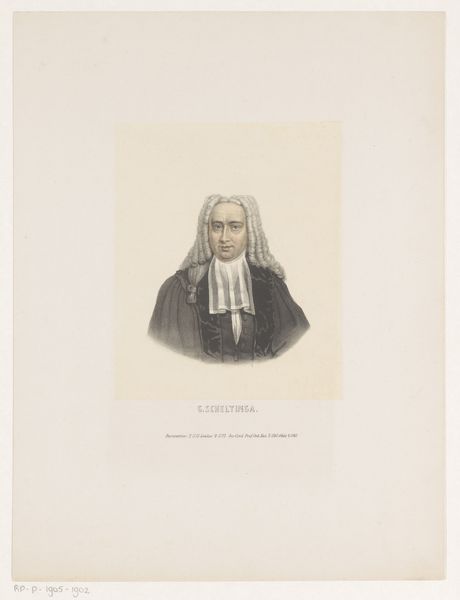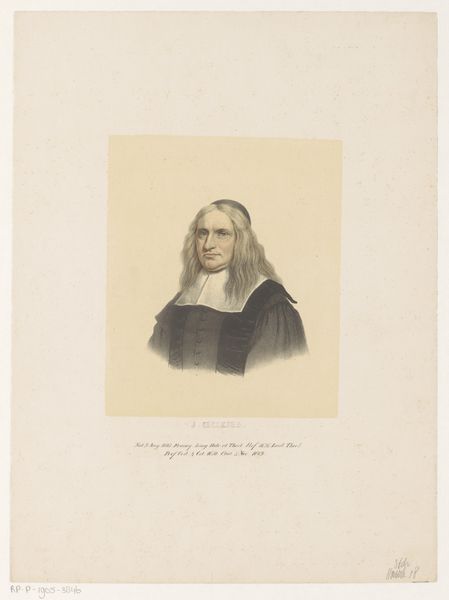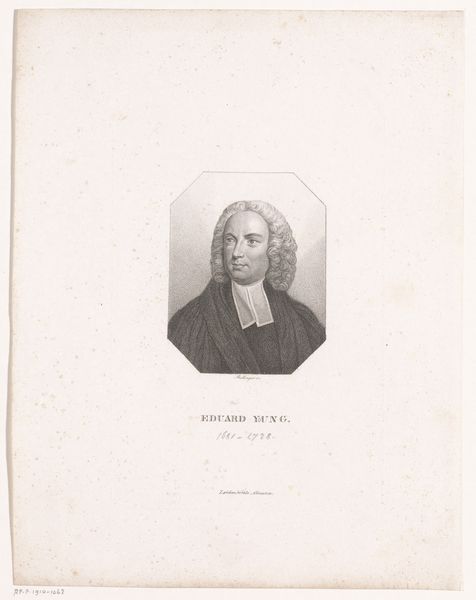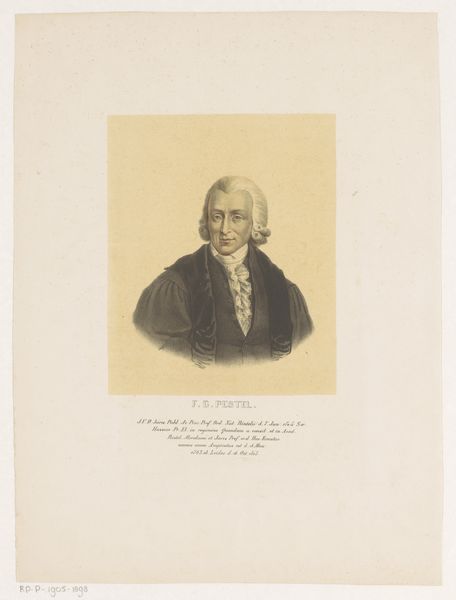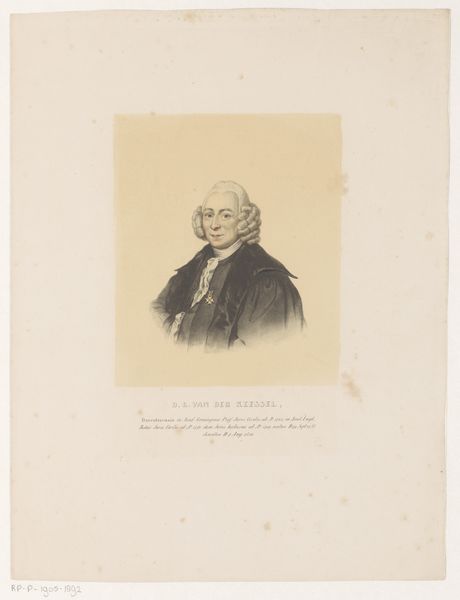
engraving
#
portrait
#
pencil drawn
#
pencil sketch
#
pencil drawing
#
academic-art
#
engraving
#
realism
Dimensions: height 339 mm, width 260 mm
Copyright: Rijks Museum: Open Domain
Curator: This is "Portret van Johannes Esgers," a lithograph portrait made around 1850 by Leendert (I) Springer. What’s your immediate response to it? Editor: A stern sense of bygone authority, almost severe, emerges from the greyscale gradations, a very austere mood in such delicate lines. Curator: Note how Springer masterfully utilizes the medium of lithography here, employing a stippling technique that adds volume to the subject’s face and clothes, highlighting form and structure. The way the light reflects, capturing a sense of tangible presence through gradations of tone. Editor: And a presence very deliberately composed. I read this portrait as participating in a wider conversation around power and representation. What do we make of the sitter's status, codified in his dress? He embodies societal expectations, yes? Curator: Exactly! The somber clothing is contrasted by the soft, almost flamboyant hair. It is a balance, I think, of discipline and a kind of personal expression, though still within the rigid confines of societal expectation. Notice too the tight, constrained mouth. Editor: Agreed, and thinking about societal context, how did such images perpetuate class structures, cementing hierarchies through representation? The seemingly objective nature of realism obscures a deeply subjective and political act. Who is portrayed, and by whom, dictates much. Curator: Yes. Although the details, almost photo-realistic, gives the illusion of reality, this is, as you note, an interpretation. A negotiation between artist and subject. It also stands as an aesthetic achievement that makes tangible Springer’s refined technique in rendering subtle shades with the engraving. Editor: Right. It is also worthwhile to ask ourselves who the portrait served—affirming status, historical record, artistic prowess? So many narratives are inscribed into this deceptively simple engraving. I appreciate your reading into its subtle forms. Curator: Indeed. It invites continuous contemplation to what is revealed and obscured in the art of portraiture. Thank you for your layered perspectives!
Comments
No comments
Be the first to comment and join the conversation on the ultimate creative platform.
